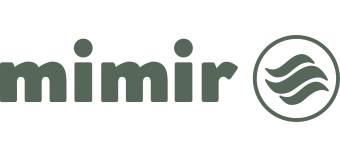
Jobs posted by Universiteit Utrecht
Mimir provides the automated job management of jobs on job boards for Universiteit Utrecht.
Latest jobs
Postdoc Verklaringsmodellen in de Psychiatrie
Er zijn heel veel verschillende verklaringsmodellen van psychisch lijden, elk met hun eigen implicaties met betrekking tot mogelijke oorzaken, behandelkeuzes, en mate van agency. In plaats van te zoeken naar één verklaringsmodel dat voor iedereen in alle omstandigheden geldt, kunnen we ook kijken naar welke duiding behulpzaam is voor een bepaald persoon op een bepaald moment.
De centrale vraag van dit postdoc project is: Wat maakt of een bepaald verklaringsmodel iemand helpt of juist hindert? Het conceptuele deel van het onderzoek bestaat uit een analyse van verschillende verklaringsmodellen en hun effecten op belangrijke aspecten van herstel. Daarnaast doe je kwalitatief onderzoek (focusgroepen) naar de ervaringen van hulpverleners en (oud)cliënten met helpende en ondermijnende duidingen. Welke ‘best practices’ kunnen we hier uit destilleren, en wat maakt iets een ‘best practice’, en volgens wie?
De postdoc positie maakt deel uit van het door NWO gefinancierde VIDI project ‘Neurodivers, ziek, of ‘gewoon mezelf’? Een evaluatie van betekenisgeving in de GGZ’. Naast de postdoc maken ook een PhD en de PI Sanneke de Haan onderdeel uit van het team. Het doel van dit project is om te onderzoeken hoe cliënten, naasten, en hulpverleners de ervaringen van cliënten duiden; welke woorden, metaforen, en verklaringen worden gebruikt; en hoe dit proces van gezamenlijke duiding op een goede manier kan verlopen, die recht doet aan de specifieke expertise en ervaringen van alle betrokkenen.
Dit onderzoek vindt plaats bij het Ethiek Instituut, dat onderdeel is van het Departement van Filosofie en Religiewetenschap van de Universiteit Utrecht. Het Ethiek Instituut biedt een stimulerende en internationaal georiënteerde onderzoeksomgeving.
AcademicTransfer
3 applications
0 views
05-03-2026 Universiteit Utrecht
PhD Betekenisgeving in de GGZ
Een belangrijk deel van het PhD onderzoek bestaat uit etnografisch veldwerk bij drie verschillende GGZ instellingen. Je loopt steeds een half jaar mee op de drie locaties en observeert de interacties tussen cliënten, naasten, en hulpverleners. Hoe duiden cliënten hun ervaringen, en hoe duiden naasten en hulpverleners deze ervaringen? Welke woorden, metaforen, en betekenissen worden door cliënten, naasten, en hulpverleners gebruikt, en hoe stemmen ze hun perspectieven op elkaar af? Je brengt deze praktijken van duiding in kaart, en analyseert de fricties en afstemmingen tussen de betrokkenen door de tijd heen.
De PhD positie maakt deel uit van het door NWO gefinancierde VIDI project ‘Neurodivers, ziek, of ‘gewoon mezelf’? Een evaluatie van betekenisgeving in de GGZ’. Naast de PhD, maken ook een Postdoc en de PI Sanneke de Haan onderdeel uit van het team. Het doel van dit project is om te onderzoeken hoe cliënten, naasten, en hulpverleners de ervaringen van cliënten duiden; welke woorden, metaforen, en verklaringen worden gebruikt; en hoe dit proces van gezamenlijke duiding op een goede manier kan verlopen, die recht doet aan de specifieke expertise en ervaringen van alle betrokkenen.
Dit onderzoek vindt plaats bij het Ethiek Instituut, dat onderdeel is van het Departement van Filosofie en Religiewetenschap van de Universiteit Utrecht. Het Ethiek Instituut biedt een stimulerende en internationaal georiënteerde onderzoeksomgeving.
AcademicTransfer
3 applications
0 views
05-03-2026 Universiteit Utrecht
PhD Position in Categorical Foundations of Type Theory
In this project, we see the aforementioned connection between mathematics and computer science as one between category theory and functional programming languages. Whereas The connection between mathematics and Martin-Löf type theory can be formalized as an equivalence between structured categories (e.g., comprehension categories, categories with families, or the like) and Martin-Löf type theories. We envision that the analogous correspondence for domain-specific variations on Martin-Löf type theory must incorporate more structured categories (e.g., enriched versions of comprehension categories or the like).
Your research will explore this area, allowing you to shape your own focus, potentially involving:
- exploring categorical semantics for these type theories using the tools of enriched category theory;
- developing a common framework for these semantics;
- formalizing aspects of this research;
- formalizing mathematics within one of these type theories;
- implementing aspects of this research.
You will be supervised mainly by Paige Randall North, with co-supervisors selected as appropriate. You will be employed jointly by the Department of Mathematics and the Department of Information and Computing Sciences.
Your responsibilities will include:
- conducting this research, both individually and as part of a team;
- participating in scientific life at Utrecht University and in the Netherlands, for example by attending and organizing seminars;
- participating in scientific life more globally, including publishing papers and attending workshops and conferences;
- contributing to teaching in mathematics and computer science, providing the opportunity to gain teaching experience.
AcademicTransfer
4 applications
0 views
04-03-2026 Universiteit Utrecht
Business Intelligence Engineer
Je werkt aan het beheer én de doorontwikkeling van onze BI-omgeving. We werken met een Enterprise Datawarehouse, gemodelleerd volgens Datavault, waarin de belangrijkste bedrijfsvoeringssystemen zijn geïntegreerd. Vanuit een aantal dimensioneel gemodelleerde datamarts worden de gegevens in een SAP BusinessObjects (4.3)-omgeving ter beschikking gesteld. Daarnaast ontwikkelen we een apart dataplatform in Azure voor o.a. analyse- en procesminingdoeleinden.
Je werkt aan oplossingen die gebruikt worden voor sturing en besluitvorming binnen de universiteit. Daarbij is er ruimte om nieuwe ideeën in te brengen en oplossingen te verbeteren.
Je houdt je bezig met:
- technisch beheer van onze omgeving;
- ontwikkelen, testen en onderhouden van ETL-processen;
- bijdragen aan de volgende generatie van onze BI-architectuur en datawarehouse oplossing;
- inventariseren en specificeren van functionele gebruikersbehoeften;
- ondersteuning van gebruikers bij datavraagstukken.
Je werkt in het team System Teams Platformen, bestaande uit acht BI-collega’s die samenwerken aan een toekomstbestendige dataomgeving voor de hele universiteit.
AcademicTransfer
0 applications
0 views
04-03-2026 Universiteit Utrecht
PhD Position in Nutritional Immunology
Low grade inflammation affects a growing population in western countries, leading to an increase in immune disorders such as autoimmunity and allergies, including asthma, which affects 10% of adults in industrialized countries. Type 2 asthma cannot be cured but it can be treated with inhaled corticosteroid (ICS) as controller medication. Some asthmatics have reduced serum levels of n-3 LCPUFA, EPA and DHA, due to low intake or reduced FADS (fatty acid desaturase) enzyme activity. Furthermore, serum vitamin A and D levels are generally low in the western population, while these vitamins can promote tolerogenic immune modulation and/or barrier protection. This project aims to highlight the relevance of these nutrients in managing pulmonary inflammation and therapy guidance, using state-of-the-art human in vitro mucosal-immune cell models.
As a PhD candidate you will further develop bronchial epithelial barrier models and study their interaction with innate and adaptive immune cells, while assessing the anti-inflammatory and barrier protective effects of n-3 LCPUFA plus vitamin A/D as adjunct treatment to corticosteroids. You will present your results at national and international conferences in the fields of Nutrition, Allergy, Pulmonary disease and Pharmacology, reflecting the broad scientific scope of the project. Working across these areas makes this position challenging and highly relevant, as you will actively bridge these scientific fields! It will also allow you to highlight the strength of combining pharmaceutical and nutritional approaches, an opportunity which is often overlooked.
Within the Division of Pharmacology our research group has long-standing experience in the field of Nutritional Immunology, with established expertise of using n-3 LCPUFA for allergy prevention in vitro and in pre-clinical models.
This project is part of the European doctoral network LipidBRIGHT, offering the opportunity to collaborate in a network of academic and non-academic partners that bridge clinical with basic research on lipids in chronic inflammatory disorders.
AcademicTransfer
14 applications
0 views
03-03-2026 Universiteit Utrecht


